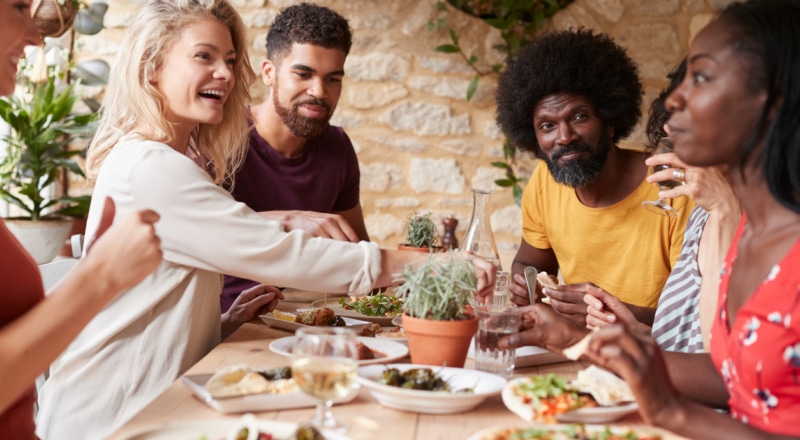5 questions to ask yourself before changing your diet
Your physical health and mental wellbeing should take priority when it comes to your diet

Everyone has some form of diet made up of the types of food they eat, whether or not these choices are related to their body or weight. You may be thinking of changing your diet for several reasons, such as to change your weight or shape or to find out what foods agree with your body best.
You may want to change your diet for health reasons, or if you feel your existing diet is having a negative impact on your body and mental health. You may also have been told to change your diet by a healthcare professional because you are allergic or intolerant to certain foods.
Regardless of why you are thinking of changing your diet, there are questions you can ask yourself beforehand to make sure you are making a choice that will be beneficial to both your mental and physical wellbeing.
5 questions to ask yourself before changing your diet?
1. How does this relate to, or how could it influence, my body image?
There are a lot of things that can influence our body image, or how we feel about how we look. These can include both factors personal to a person and external factors such as cultural pressure and beauty standards. If you are thinking of changing your diet because you are unhappy with how you look, it is important to be careful.
Changing your diet can become a coping mechanism for dealing with negative emotions and stress, and this can lead to disordered eating and even the development of an eating disorder. When your body image causes you serious distress, there are often deeper, underlying issues at play that will not be fixed even if you do manage to change your weight and shape through changing your diet.
2. By changing my diet, am I giving my body all the nutrients it needs?
If you want to change your diet it is important to reflect on whether you are taking care of your body as a whole. For most people, there is no need to cut out one certain type of food group from their diet, unless they are told to do so by a healthcare professional due to an allergy or condition. Having a balanced and varied diet is the best way to ensure your body is getting all of the vitamins and nutrients that it needs to be healthy.
3. Will my diet be varied and flexible?
Most of us have certain foods and restaurants that are our favourite. There is nothing wrong with having favourite foods, but just as with most things in life, it is important to be able to be flexible with what we eat in order to have a balanced approach. If a certain diet will restrict what you eat to an extent where you cannot go out for dinner with friends or eat any of your favourite foods, it is important to question what negative impact this diet might have on your mental wellbeing, and if that diet is healthy for you overall. Similarly, if you think that by continuing to eat as you currently do you are only focusing on one or two food groups, it is important to change that and try and bring more balance and flexibility to your diet.
4. Could exercise help me be happier with my physical health?
If you want to change your diet in order to change how your body looks or improve your overall wellbeing, incorporating exercise might be beneficial. Exercise has a range of positive effects on the body including releasing stress, boosting happiness levels and helping you to sleep better at night. It also could be an opportunity to develop a new hobby and meet new people. Attending an exercise class or joining a gym can give you a way to take proactive steps for your health without having to limit or restrict your diet.
5. Do I enjoy the meals I eat?
When choosing what foods to eat ask yourself:
- Will this food provide my body with nutrients and vitamins?
- Is this meal balanced or part of an overall balanced diet?
- Do I enjoy eating this food?
- Will this meal positively impact my mental health?
It is important to remember your meal does not always have to tick all the boxes above before you choose to eat it. There do not need to be strict do’s and don’ts when it comes to what you eat. What is important is finding balance so that you can eat what you enjoy while giving your body the nutrients it needs.
Supports for people struggling with their relationship with food and body image
Food and eating meals should be an enjoyable part of life and if you feel you are unhappy with your relationship with food, it is important to speak to someone about this. BodyWhys offer support services to those experiencing disordered eating. Jigsaw also offer youth counselling service for people aged 12-25 where you can talk to someone about your body image and how you feel about yourself.






